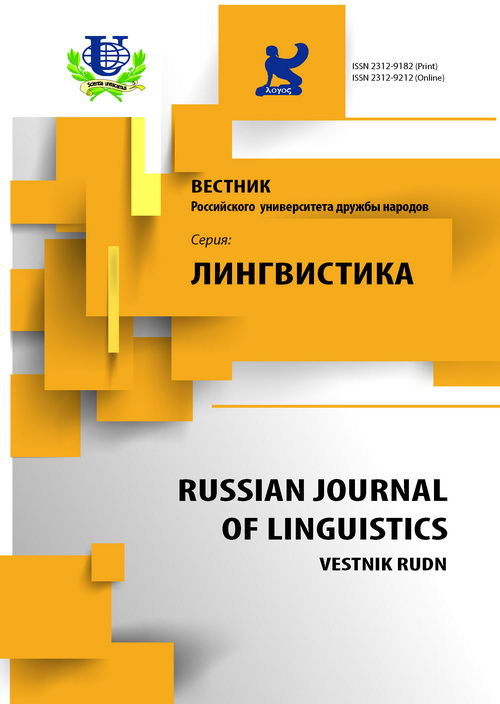To the problem of Court Interpreter’s Code of Ethics
- Authors: Vasilenko LY.1
-
Affiliations:
- Peoples’ Friendship University of Russia
- Issue: No 4 (2013)
- Pages: 5-10
- Section: Articles
- URL: https://journals.rudn.ru/linguistics/article/view/9579
- ID: 9579
Cite item
Full Text
Abstract
This article focuses on identification of specific features of court interpreting regarded as a tool of human rights provision in criminal proceedings. The article also deals with detailed analysis of Court Interpreter’s Code of Ethics and possibility of its application in Russia.
About the authors
L Yu Vasilenko
Peoples’ Friendship University of Russia
Email: laravas@list.ru
Department of foreign languages Law faculty
References
- Винников А.В. Практические аспекты участия переводчика в уголовном процессе // Уголовный процесс. — 2012. — № 1. — С. 60—66.
- Baker M. In other words: A coursebook on translation. — London: Routledge, 2011.
- Camayd-Freixas E. Court Interpreter Ethics and the Role of Professional Organizations. Interpreting in a Changing Landscape. proceedings of the 6th International Critical Link Conference. — Amsterdam/Philadelphia: John Benjamins, 2011.
- Carr S., Roberts R., Dufuor A., Steyn D. The critical link: Interpreters in the community. Papers from the First International Conference on interpreting in Legal, Health and Social Service Settings. Geneva Park, Canada, June 1—4. Amsterdam. — Philadelphia: Benjamins, 1995.
- Cheney G. et al. Just a job? Communication, ethics & professional life. — Oxford: Oxford University Press, 2010.
- Hertog E. Aequitas, Access to Justice across Language and Culture in the EU. — Antwerp: Lessius Hogeschool, 2001.
- Mikkelson H. Introduction to Court Interpreting. — Manchester, UK and Northampton, MA: St. Jerome Publishing, 2000.
- Morris R. The moral dilemmas of Court Interpreting // The translator. — 1995. — Vol. 1. — № 1. — P. 25—46. St. Jerome Publishing, Manchester.
Supplementary files















